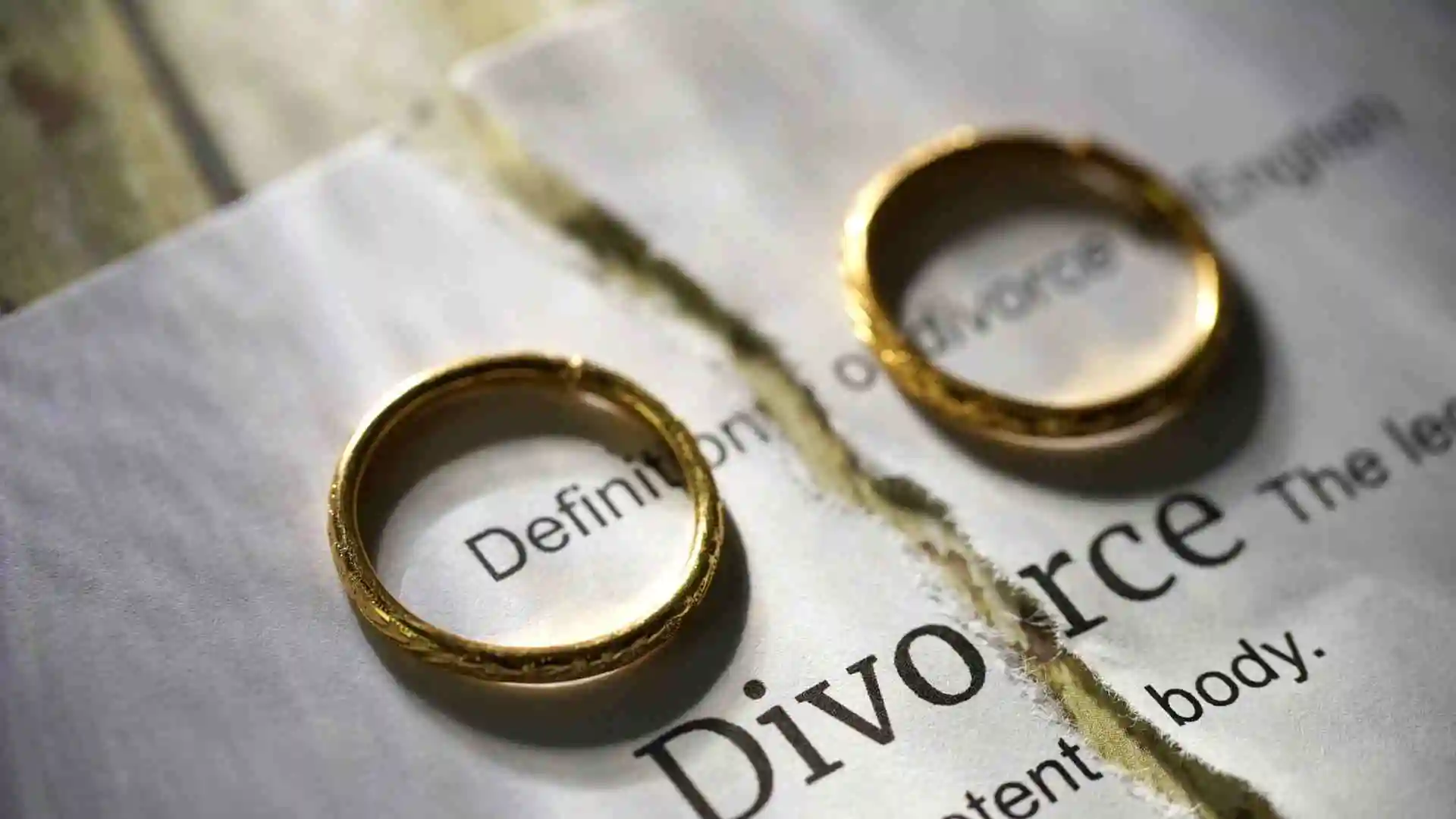Divorce in Ireland: Legal Steps, Separation, and Custody Explained

Divorce in Ireland is both a legal and emotional process. Knowing the steps helps reduce stress and confusion. In Ireland divorce follows rules and processes. Knowing the rules of the divorce process, will help you think more clearly and objectively about your separation. Divorce will affect your finances, your children, and your future relationships. You need to know your rights and obligations at every stage of the process. Then, whichever side of the divorce application you are on, knowing about the divorce process in Ireland, can aid in decreasing conflict and uncertainty.
Requirements of Divorce in Ireland
There are some legal divorce requirements Ireland to satisfy in order to be able to apply for divorce in Ireland. As explained in Irish law, and strictly followed by the Courts, you can start a divorce application if;
- First, the spouses have lived apart for two of the last three years. This does not solely mean that both parties need to have lived in separate places. The Courts confirm that “living apart” in this context is ‘ your relationship with each other must have been of a nature such that it is not a sexual relationship (or emotionally connected relationship), even if both parties are continuing to live in one place.’
- Second, one or both spouses must be domiciled in Ireland or for a full year before they apply for divorce.
- Third, the court must be satisfied that there is no reasonable possibility of the spouses reconciling and that proper arrangements have been made or will be made, now or in the future for any dependent children of the family.
These divorce conditions in Ireland are only the first stage before the court will allow an application for divorce matter to be heard by it.
From Separation to Final Decree: Stages of Irish Divorce Process
In Ireland, divorce follows a structured path that includes filing legal documents, attending court and reaching agreements on key issues.
Legal Separation in Ireland
Many couples in Ireland separate before they are divorced. This can be informal or formal. Inferred separation can occur in one of two methods in Ireland; the court can grant a judicial separation or the spouses can make a separation agreement, informally or formally, between themselves. Typically, separation agreements normally include agreements on property, children, and financial maintenance. A separation agreement Ireland is a written contract for the parties, this is not a divorce and allows couples to live separately and independently without a divorce.

Judicial separation requires a hearing in court where the judge hears the case. Judicial separation does not have to be carried out in advance of divorce. Although it can make it easier to proceed with divorce.
How to Get a Divorce in Ireland
If a spouse is able to satisfy the criteria, the spouse may apply for a divorce at the divorce court Ireland. It is the first step. Filed documents contain legal paperwork to be submitted to either the Circuit Court or the High Court, depending on the complexity of the case. The most notable documents are the Family Law Civil Bill, the Affidavit of Means (to establish the spouse’s financial position), and the Affidavit of Welfare if there are children involved.
The next step is the respondent must respond. If the two sides are able to agree the court case proceeding will be quick. In a disputed case, hearings will be scheduled. After hearing and reviewing all the facts about the marriage, the judge will issue a decree of divorce, thus ending the marriage in law. The divorce decree is what really defines the processes around divorce in Ireland.
Mediation and Legal Advice
Mediation is an increasingly popular way of settling divorce-related issues without going to court. This often results in a quicker and less stressful outcome for both the parties.
Mediation in Divorce
A divorcing couple is encouraged to settle their case before they reach the court house. Mediation can serve as a constructive step as they move toward the next phase of their collaborative process. Mediation takes place when a neutral mediator meets with the parties to help them agree on such things as property, child custody, support and money. Mediation can help reduce the cost, emotionally and financially, of the court process.
Mediation with a mediator is private, quicker than going through court. Couples often end up in a more cooperative relationship post-divorce. In some cases, courts will delay the case to let the parties try meaningful mediation if they think the parties have not made a genuine effort to mediate their issues.
Seeking Legal Advice
While mediation is beneficial, some situations need professional legal assistance. A solicitor can clarify your rights, draft documents, and represent you in court. Family law matters in Ireland are complex in nature, especially when children or significant assets are involved. Depending on your means, legal aid may be available. Getting early advice will protect your position and ensure the matter proceeds as smoothly as possible.
Asset Division and Child Custody
Dividing property and the financial assets is the most contested part of the divorce process. A fair and equitable split is the goal, but achieving it needs transparency and sometimes negotiation.
Asset Division Ireland
How to divide property and finances is usually the biggest worry in any divorce. In Irish law, there is no 50/50 rule in place. Instead, the court uses its discretion and considers many things; length of the marriage, spouses contributions (both monetary and non-monetary), current and future needs of the couple, responsibilities for children, etc.

Asset division in divorce in Ireland covers everything from property and savings to pensions, ownership interests in businesses, and debts. If the two parties come to an agreement, the courts usually grant approval as long as it can be shown to be fair to the parties. If not, the judge will decide what is just and equitable in respect of the parties assets and debts.
Child Custody in Ireland
The needs of children are always the first consideration of the court. A court may order joint custody, sole custody, or structured access rights depending on the best interests of the child in child custody in Ireland. Parents are also required to agree on issues such as financial maintenance, schooling, and residency. The court scrutinises the details of these plans before issuing a divorce.
Even in shared custody arrangements, the parent not living with the child is usually obliged to make child maintenance payments. In making its ruling, the judge ensures that divorce causes minimal disruption to the child’s life.

Spousal Maintenance
In certain circumstances, one spouse may be without any means of obtaining support after a separation. In these situations, the court can order spousal maintenance and can order it for an interim amount of time or permanent as needed with respect to each spouse’s financial state. In making a finding on a spousal maintenance application the Court has to consider the following criteria:
- the age and health of the couple
- their ability to earn future support
- the standard of living during the marriage
Spousal maintenance differs from child maintenance in that child maintenance is based on what is appropriate on behalf of the children. Spousal maintenance is based on financial dependence, and the obligation of the couple to ensure that their financially dependent spouse does not suffer undue hardship by the separation or divorce. Accordingly, if one party refuses to comply with the orders of the Maintenance, the Court has the power to make orders for enforcement.
Emotional and Financial Recovery
Divorce is not just a matter of legal status. Apart from emotional hurt, divorce will cause financial uncertainty. It’s important to plan how to heal. he first way is to work through creating a budget for your new household, especially during times like Christmas in Ireland when spending can spike. You will need to close joint bank accounts and open individual bank accounts. Update and review your will and your insurance policy separately.
There is also a way to heal emotionally. Therapists, support groups or even family and friends offer valuable resources to deal with the emotions of loss, anger, or guilt that often follow divorce. There are many healing resources available. But that’s to say only time will heal. You can prepare for a very healthy post-divorce future by addressing both financial and emotional well-being.
Support Services and Legal Resources
There are a number of organisations that offer free or low-cost assistance for individuals who are going through a divorce. They cover legal advice, counseling, and mediation.
- The Courts Service of Ireland outlines the full divorce process in Ireland: Courts.ie – Divorce
- Citizens Information will outline a divorce decree and general rights: Citizens Information – Divorce
- Legal Aid Board help the person who cannot afford a solicitor: LegalAidBoard.ie
- FLAC gives free legal advice: FLAC.ie
- Family Mediation Service support out-of-court settlement: Mediation Service
Using any one or multiple of these supports can help ease the legal and emotional burdens of divorce.
Conclusion
Divorce is a challenging experience, but knowing the process of divorce in Ireland will allow you to move forwards with certainty. From legal separation Ireland to the decree absolute, each step will be accompanied by legal, emotional, and financial decisions to be made. Whether it be child custody Ireland, dividing the assets, or claiming spousal maintenance, knowing your options is everything when trying to make solid decisions.
Use family law Ireland professionals, mediators and support groups to best equip yourself. With knowledge and guidance, a brighter chapter of your life can begin after divorce in Ireland.
FAQs
LATEST NEWS
DISCOVER MORE





